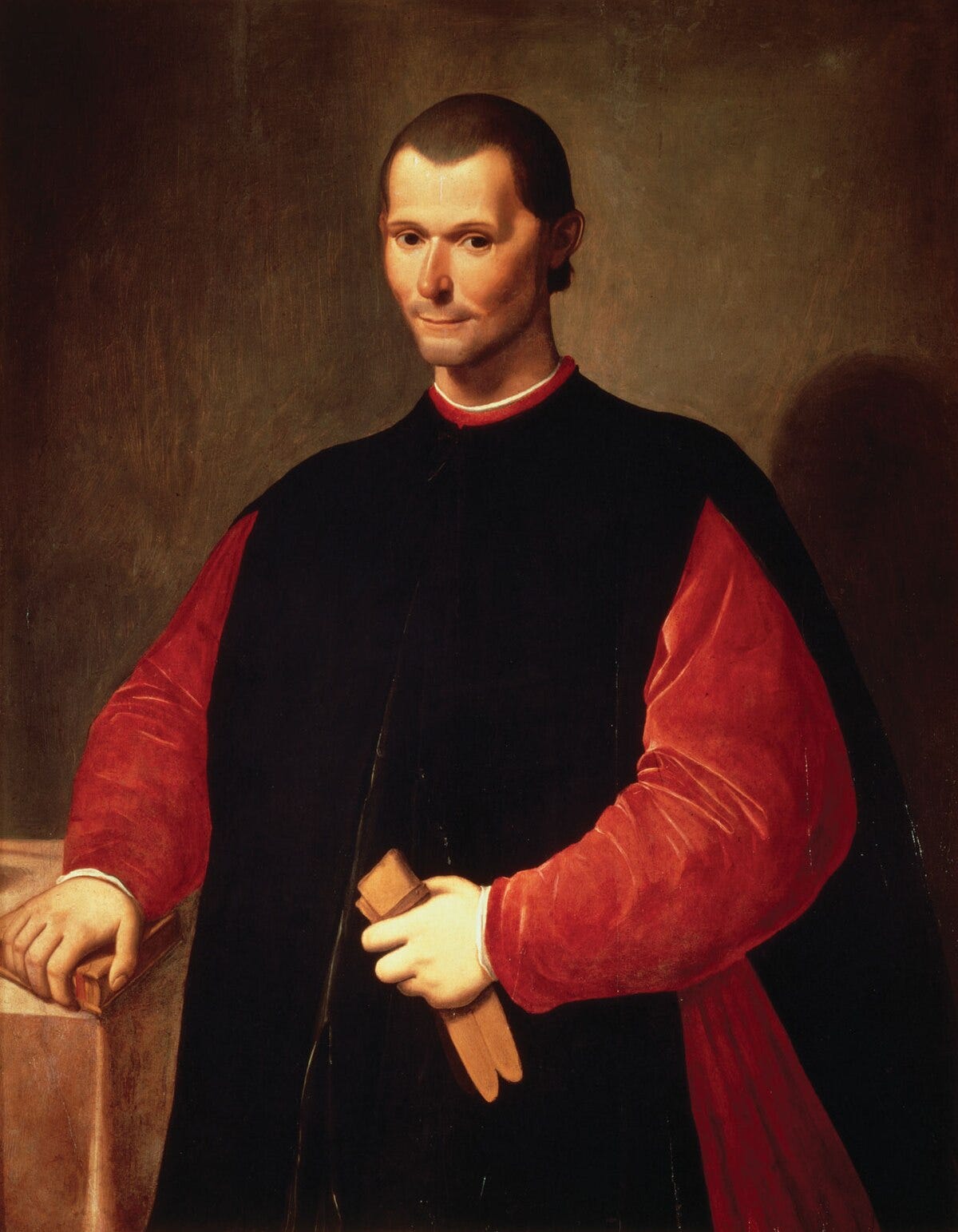Machiavelli’s 'The Prince' Makes The Best Case For Libertarianism
Niccolo Machiavelli’s The Prince has become one of history’s most controversial books. Its contents are seen as immoral to our modern sensibilities, but where the controversy arises, is the value of Machiavelli’s study.
The Prince is not a normative book. While it may seem prescriptive, its use of historical case studies to illustrate themes betrays that Machiavelli is being descriptive of what he believes causes power, not what one ought to do with it. It is agreed upon by many historians that Machiavelli was a republican, and didn’t genuinely support the actions in his book.
Rather, he was reporting on power as he observed it as a civil servant and scholar of history. While his intentions are unconfirmed in The Prince itself, this is not how he wanted people to live. He merely believed it was (is) the reality that unfortunately shapes human action. He was no fan of the use of brutality for power, but portrayed the methods used to achieve it in an honest fashion.
Machiavelli eliminated the illusion that power was divinely wrought and virtuous. The Prince outlines a guidebook to statesmanship, but every piece of advice is suggested alongside the historical case study that informs it. It is not so much that Machiavelli is telling the reader to seize power in this manner, but that this is the way that power is seized.
Machiavelli highlighted the importance of the actions of men. While fortune is the uncontrollable state of nature and society, the man is what acts within this state to achieve power. With the example of Agothocles’ ascension, Machiavelli explained how power is wrought most substantially through human action, and only a little by fortune. In this regard, Machiavelli can be seen as an early enlightenment thinker and perhaps even a forerunner to the Austrian economists who highlighted the role of individuals in economic action.
Machiavelli’s notion went against the commonly-held assumption that authority was vested in monarchs by God. Machiavelli does, in fact, write about religious authority, politely to avoid persecution, but illustrating quite succinctly how even the papacy utilised power like men.
Machiavelli’s innovation was his dispersal of Christian idealism in favour of realism. Instead of being something mythical or virtuous, he reveals that power is merely the domain of men and brutality. In so doing he demystified Christian idealism.
Jared Diamond put it succinctly: “[Machiavelli] is frequently dismissed as an amoral cynic who supposedly considered the end to justify the means… [in fact, he was] a crystal-clear realist who understands the limits and uses of power”.
Opposed to idealists, Machiavelli made many claims that seem immoral, but are merely reports of what he observed. When he reported that laws require arms and force, he was writing from experience and study. When he wrote that a prince must be simultaneously man and beast, he was writing from, and recognising, a context wrought from warfare and violence. Most apt of all, however, was his matter of fact statement that princes exist to oppress and that people only want to be free from this oppression, revealing rulers as malicious and not in the interest of the population.
The most valuable lesson of The Prince is that power can’t be trusted. It is inexorably linked to brutality and deceit. From this, we, as readers, are more prepared to distrust potential tyrants and conniving politicians. William Enfield, in fact, argues that Machiavelli was satirising rulers and their malice in The Prince, making it a form of rebellion against a system he despised. Rousseau wrote that the book was meant to incite a revolution and be used to help understand tyrannical monarchs.
Before hearing of Hayek, Mises, Rothbard and Nozick, my interest in renaissance history led me to Machiavelli. By truly appreciating the underlying message in The Prince that power cannot be innocent, one is inevitably set on the path to libertarianism. Power is the domain of the brute. In this way, government cannot be made up by the virtuous, because one must lack virtue to attain power in the first place. The Prince should lead us to distrust government, and those who call for government to be empowered.
Everyone should read Machiavelli, because it makes the case for why government is bad; or, at least, not virtuous. It also lays the foundation for the libertarian conception of the state.
Libertarians, especially, should read it so to remind themselves why we are libertarians in the first place: Power should not be trusted, and cannot be innocent.
Nicholas Woode-Smith is the Managing Editor and a Co-Founder of the Rational Standard.



